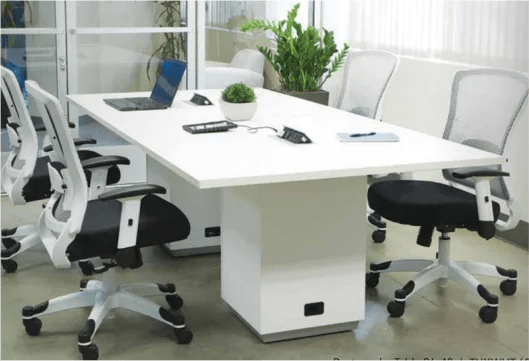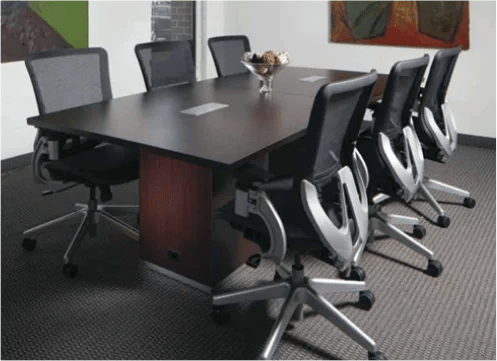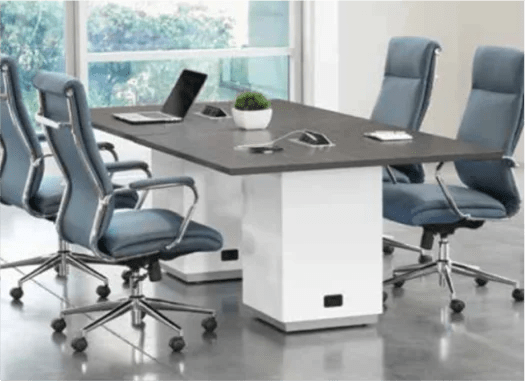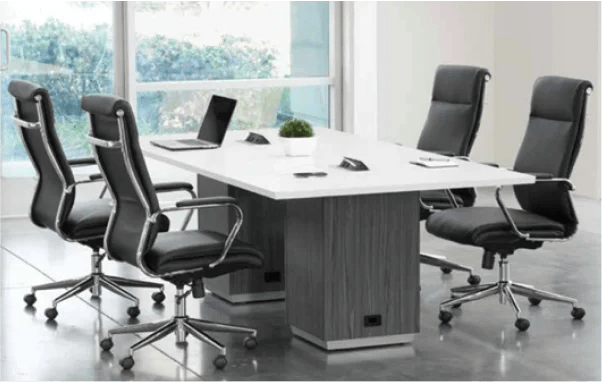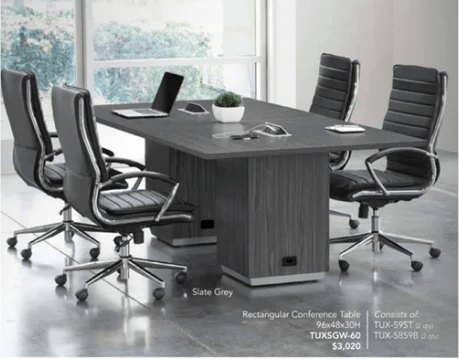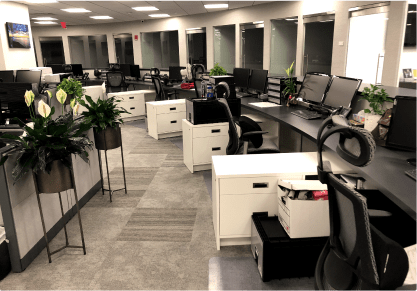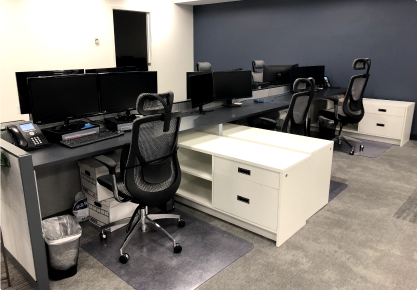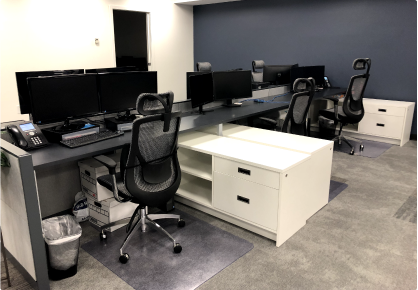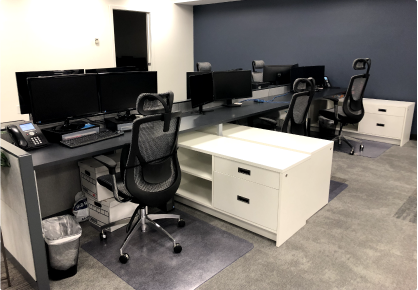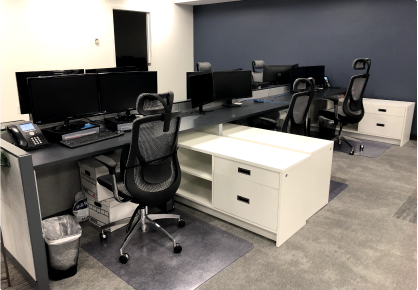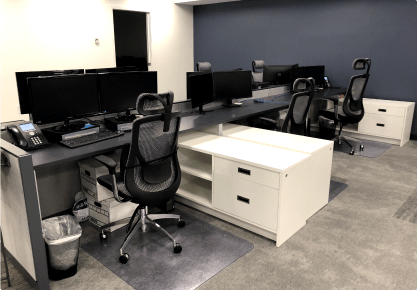- NY Phone: (212) 641-4300 |
- NJ Phone: (908) 300-5664
Eco-Friendly Office Decommissioning: Reducing Waste & Carbon Footprint
Eco-Friendly Office Decommissioning: Reducing Waste & Carbon Footprint

That extra office chair tucked in the corner, or those filing cabinets gathering dust in the back room—they might seem harmless, but unused office furniture can quietly drain your business’s resources. Beyond just taking up space, it carries a range of hidden costs that impact your bottom line, workplace efficiency, and commitment to sustainability. By recognizing these often-overlooked expenses, you can make smarter decisions about managing your office assets.
1. The Weight of Storage Costs
On-Site Space Waste: Prime office real estate is valuable. Storing unused furniture on-site means sacrificing potential space for revenue-generating activities. Imagine the possibilities: extra workstations, a collaborative meeting area, or a dedicated innovation zone.
Off-Site Storage Fees: Renting off-site storage adds up quickly. Those monthly fees can become a significant, recurring expense. Plus, don’t forget the costs of maintaining those spaces: cleaning, pest control, and climate control.
2. Lost Opportunities and Untapped Value
Revenue Potential: Space occupied by unused furniture represents lost revenue opportunities. That space could be used to expand operations or create a more productive workspace.
Resale Value: Unused furniture often retains value. Partnering with services like Eltru allows you to recoup some of your investment by selling or donating your furniture. Donations can also provide tax benefits, adding another layer of financial advantage.
3. Environmental Responsibility
Landfill Impact: Discarding unused furniture contributes to landfill waste. Sustainable practices, like recycling and refurbishing, are crucial for reducing your company’s environmental footprint.
Resource Consumption: Producing new furniture consumes valuable resources. By extending the life of existing furniture through refurbishment or recycling, you can minimize your company’s carbon footprint.
4. Maintenance and Deterioration
Upkeep Expenses: Even in storage, furniture requires maintenance. Neglected items can deteriorate, develop mold, or attract pests, leading to costly restoration.
Reduced Resale Value: Deterioration significantly lowers resale value. Regular assessments and timely action are essential to maximize potential returns.
5. The Psychological Toll and Productivity Drain
Clutter and Morale: A cluttered office creates a disorganized and uninspiring environment. This can negatively impact employee morale and productivity.
Professional Image: A neglected office space can create a poor impression on clients and visitors. A clean, organized workspace fosters a professional image.
6. Depreciation and Obsolescence
Outdated Assets: Office furniture depreciates over time. As trends and ergonomic innovations evolve, older furniture becomes obsolete, losing value.
Limited Resale: Holding onto outdated furniture for too long results in minimal or no resale value.
7. Insurance and Liability Concerns
Increased Premiums: Businesses often insure all office assets, including unused furniture, leading to higher insurance premiums.
Safety Hazards: Improperly stored furniture can create safety risks, increasing the likelihood of workplace accidents and liability issues.
Taking Proactive Steps
To mitigate these hidden costs, adopt a proactive approach:
Regular Inventory: Conduct routine assessments to identify unused items.
Resell or Donate: Partner with platforms like Eltru to sell or donate furniture.
Optimize Storage: Store only essential items and ensure proper maintenance.
Sustainable Disposal: Embrace eco-friendly practices like refurbishing and recycling.
By addressing the hidden costs of unused office furniture, you can create a more efficient, sustainable, and cost-effective workspace. Services like Eltru specialize in helping businesses navigate these challenges, offering sustainable solutions that maximize value and minimize environmental impact.
Contact Us For
OFFICE SPACE SOLUTIONS
and FF&E Services
Copyright © 2026 RJV Office Furnishing LLC




